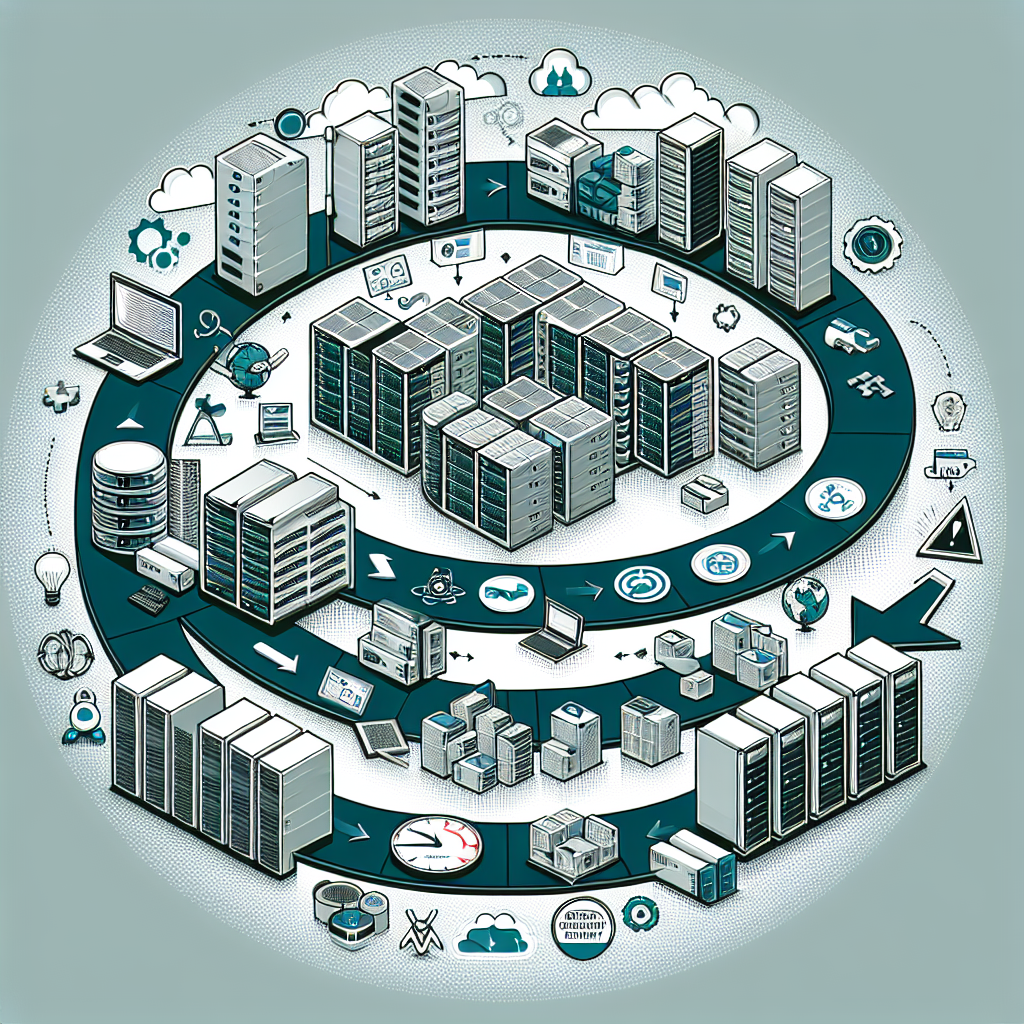Your cart is currently empty!
The Role of Data Center Lifecycle Management in Business Continuity and Disaster Recovery

Data centers play a crucial role in the operations of businesses today, serving as the backbone of their IT infrastructure. With the increasing reliance on technology and data, it is essential for organizations to have a robust data center lifecycle management strategy in place to ensure business continuity and disaster recovery.
Data center lifecycle management involves the planning, design, implementation, and maintenance of data centers throughout their operational lifespan. This includes everything from selecting the right location and equipment, to ensuring proper cooling and power distribution, to monitoring and managing performance and capacity.
One of the key benefits of data center lifecycle management is its role in ensuring business continuity. In the event of a disaster or unexpected outage, having a well-maintained and properly managed data center can help minimize downtime and ensure that critical business operations can continue without interruption. This is particularly important for industries that rely heavily on data and technology, such as finance, healthcare, and e-commerce.
Disaster recovery is another critical aspect of data center lifecycle management. By implementing redundant systems, backup power supplies, and data replication strategies, organizations can ensure that their data remains safe and accessible in the event of a disaster. This can help minimize data loss and ensure that the business can quickly recover and resume operations.
In addition to business continuity and disaster recovery, data center lifecycle management can also help organizations optimize their IT infrastructure and reduce costs. By regularly evaluating and updating their data center equipment and processes, organizations can identify areas for improvement and implement cost-saving measures. This can help drive operational efficiency and improve the overall performance of the data center.
Overall, data center lifecycle management plays a crucial role in ensuring the reliability, availability, and security of an organization’s IT infrastructure. By proactively managing and maintaining their data centers, organizations can minimize the risk of downtime, protect their data from loss or corruption, and ensure that critical business operations can continue in the face of unexpected challenges. Investing in a comprehensive data center lifecycle management strategy is essential for any organization looking to safeguard their business continuity and disaster recovery capabilities.

Leave a Reply